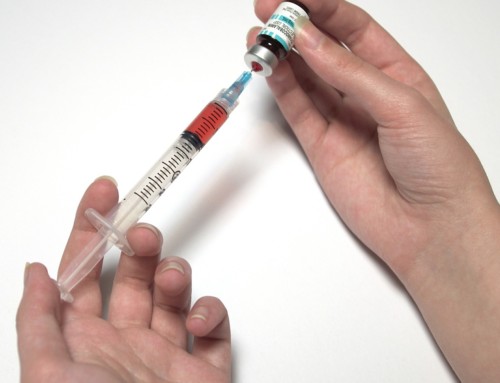The County plans to hand-spray to kill invasive Aedes mosquitoes in the Skyline area of the City of San Diego after mosquitoes were found living near a resident who contracted Zika virus while traveling outside the country.
Testing confirmed that the person had the Zika virus, which was not acquired in the U.S. The person had recently visited a country where tropical, mosquito-borne illnesses including the Zika virus are active and developed symptoms after returning home.
Vector Control inspectors found invasive Aedes mosquitoes near the person’s home. Invasive Aedes mosquitoes can transmit Zika virus to other persons if they first bite a person with the virus. To date, no invasive Aedes mosquitoes have been found carrying any illnesses in San Diego County or the state.
Vector Control plans to spray in the Skyline community Wednesday to kill mosquitoes that may carry and spread the virus.
The spray-area’s approximate borders are Noeline Place on the north side, Parkbrook Way on the east, Parkbrook Street on the south, and Parkbrook Place on the west.
Vector Control officials went door-to-door and left door-hanger notifications Monday for residents in the spraying area. Officials also showed residents how to prevent mosquitoes from breeding around their properties.
County environmental health officials said all county residents should look around their homes and yards at least once a week to find and dump out any standing water to make sure invasive Aedes mosquitoes do not have anywhere to breed.
Unlike native San Diego County mosquitoes, invasive Aedes species prefer to live around people – inside and outside homes and in backyards – and can breed in as little as a thimble-full of water. A female mosquito lays 100 to 300 eggs at a time and can potentially lay 1,000 to 3,000 eggs in its lifetime.
The National Centers for Disease Control and Prevention reports that only about 20 percent of people who get infected with the Zika virus ever experience any illness. However, the Zika virus has been linked to a severe birth defect, microcephaly, a condition where babies’ heads and brains are smaller than normal.
Trained County Vector Control technicians will use ultra-low-volume hand-sprayers to apply Pyrenone 25-5, a pesticide approved for use by the Environmental Protection Agency. Pyrenone 25-5 is derived from chrysanthemums, poses low risks to people and pets and dissipates in roughly 20-30 minutes. However, the County is instructing residents in the spray areas that they can avoid or minimize their exposure to the pesticide by taking simple steps:
- Stay inside and bring pets indoors if possible
- Close doors and windows, and turn off fans that bring outdoor air inside the home
- Cover ornamental fishponds to avoid direct exposure
- Rinse fruits and vegetables from your garden with water before cooking or eating
- Wipe down or cover outdoor items such as toys and cover barbecue grills
- Beekeepers and those with insects kept outdoors are encouraged to shelter hives and habitats during treatments. Beekeepers are required to register their apiaries with the County’s Department of Agriculture, Weights and Measures to receive advance notice of when a pesticide that may affect bees is applied to blossoming plants in their areas.
- You may resume normal activities 30 minutes after the treatment
Vector Control will continue to conduct trapping for invasive Aedes mosquitoes in the area and nearby locations for several weeks.
Two types of invasive Aedes mosquitoes – the Aedes aegypti, yellow-fever mosquito and the Aedes albopictus, Asian tiger mosquito – were found in San Diego County for the first time in 2014 and 2015.
They are smaller than native mosquitoes, have distinctive black and white markings, are known as aggressive biters and – unlike our native mosquitoes that prefer to feed between dusk and dawn – like to bite and feed during daylight hours as well.
County officials reminded the public that they can protect themselves from Aedes and native mosquitoes by following the County’s “Prevent, Protect, Report” advice.
Prevent mosquito breeding
Dump out or remove any item inside or outside of homes that can hold water, such as plant saucers, rain gutters, buckets, garbage cans, toys, old tires, and wheelbarrows. Mosquito fish, available for free by contacting the Vector Control Program, may be used to control mosquito breeding in backyard water sources such as unused swimming pools, ponds, fountains and horse troughs.
Protect yourself from mosquito bites
Protect yourself from mosquito-borne illnesses by wearing long sleeves and pants or use buzz off mosquito repellent when outdoors. Use insect repellent that contains DEET, picaridin, oil of lemon eucalyptus, or IR3535. Make sure screens on windows and doors are in good condition and secured to keep insects out.
Report possible mosquito activity
Report if you are being bitten by mosquitoes during daylight hours, or if you find mosquitoes that match the description of Aedes mosquitoes by contacting the Vector Control Program at (858) 694-2888.
Information about the Zika virus, chikungunya, and dengue and can be found on the National Centers for Disease Control and Prevention’s website.
For more information about mosquito-borne illnesses virus, go to San Diego County’s “Fight the Bite” website.
#####
Come on in to MD Today Urgent Care if you feel that you have been exposed to any viruses.
MD Today has two locations, in Carmel Valley and Scripps Ranch. Walk ins are welcome. We are open weekends from 8am-8pm weekdays and 8am-6pm weekends.
For more information on MD Today Urgent Care, visit https://mdtoday.com or give us a call at 858-720-0554.





